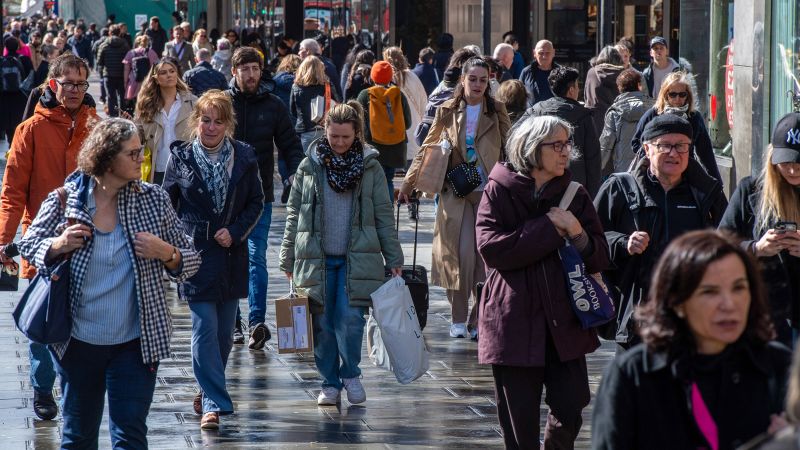The United Kingdom’s economy limped along in the first quarter of this year as consumers spent less on services and strike action took its toll.
The country’s gross domestic product (GDP) ticked up 0.1% in the first three months of 2023, compared with the previous quarter, data from the Office for National Statistics (ONS) showed on Friday.
But output dropped by 0.3% in March, compared with February, on the back of “widespread decreases” in demand across the services sector, Darren Morgan, director of economic statistics at the ONS said in a statement.
Morgan added that a series of strikes by public sector workers had also weighed on activity.
“While the UK has so far has managed to avoid a technical recession, defined as two consecutive quarters of growth, March’s figures highlight the persistently sluggish economic growth backdrop,” said Victoria Scholar, head of investment at Interactive Investor.
“Sky-high inflation, negative real wage growth and general cost of living pressures are weighing on the consumer, and in turn the services industry which is typically a key growth engine for the UK economy,” she added in a note.
The Bank of England raised interest rates for the 12th consecutive time Thursday in its battle with double-digit inflation. It also upgraded its economic forecasts Thursday, saying it now expects the UK to dodge a recession this year, mostly thanks to a sharp drop in energy prices.
The central bank expects the UK economy to grow by 0.25% this year and by 0.75% in 2024 — a much more positive assessment than in February, when it forecast contractions of 0.5% and 0.25%, respectively. Governor Andrew Bailey said it wasn’t a “strong forecast,” just less weak than the bank’s previous projections.
“The UK remains the only G7 country in which the main quarterly measure of GDP has not recovered to its pre-Covid peak yet,” Samuel Tombs, chief UK economist at Pantheon Macroeconomics, said in a Friday note.
Consumer price inflation in the UK remains stubbornly high, holding above 10% in the year to March. The ONS said that higher prices had weighed on real household spending in the first quarter, which was flat, compared with an uptick of 0.2% in the final quarter of 2022.
“With the key services side of the economy continuing to slow in the face of higher borrowing costs and rising prices, it still feels like we’re walking through treacle,” Tom Stevenson, personal investing director at Fidelity International, said in a Friday note.
“With inflation still in double digits, it feels depressingly like a re-run of the 1970s.”
The Bank of England expects inflation to fall sharply over the coming months.
Read the full article here
